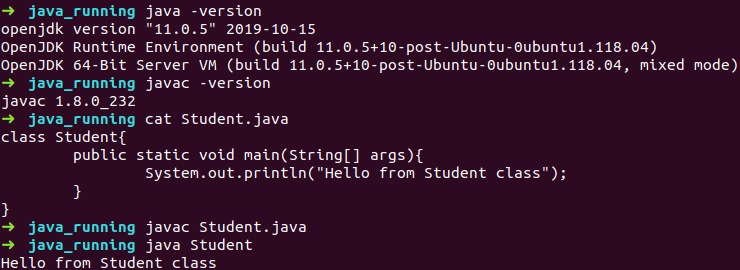

- #Install ffmpeg ubuntu 18 install
- #Install ffmpeg ubuntu 18 driver
- #Install ffmpeg ubuntu 18 full
- #Install ffmpeg ubuntu 18 software
Install the ffmpeg command-line tool: $ sudo apt install -f ffmpeg.ts extension are also playable with the same hardware acceleration after a few extra steps: See the Future Roadmap below where we will try to fix those issues.
#Install ffmpeg ubuntu 18 software
VLC, Mplayer, Google Chrome and Firefox for example, will only use software decoding (much higher CPU) since they use FFmpeg directly rather than GStreamer. Other video player apps won't work anywhere near as efficiently. With Gnome Shell on Wayland you might need to force it: $ env -uDISPLAY mpv -hwdec -opengl-backend=wayland myvideo.mp4 MPV can also work fully accelerated on Wayland, but again it doesn't work automatically.

It is known to be implemented and working properly in mpv only. The reason why mpv is recommended over other FFmpeg-based players is because FFmpeg hardware acceleration support is not automatically integrated and has to be implemented per application. Play your video with mpv hardware acceleration turned on (it's not turned on by default!): $ mpv -hwdec=vaapi myvideo.mp4 or using autodetection: $ mpv -hwdec myvideo.mp4
#Install ffmpeg ubuntu 18 full
#Install ffmpeg ubuntu 18 driver

You may find that 17.10 or 17.04 is required in order to get a current acceleration driver that supports your hardware. If you need web browser video, or MKV files for example, then you should look at the Future Roadmap instead. What "works" well is limited to a couple of particular video players. Unfortunately we cannot recommend gnome-mpv right now. However totem has a few performance problems that are still yet to be fixed so for smoother playback and lower power usage we recommend mpv instead, which in Ubuntu 17.10 and later is configured to provide working hardware acceleration out-of-the-box: $ sudo apt install mpv You can verify this by installing the vainfo tool: $ sudo apt install vainfo You now have working hardware accelerated video playback in totem ("Videos" app) only. If you already have Ubuntu installed or failed to get third-party software installed because you weren't connected to the internet during setup then all you need to do to catch up is: $ sudo apt install ubuntu-restricted-addons.Assuming you have internet access while installing Ubuntu then simply ticking the "Install third-party software" option will install most of what you need. If you are installing Ubuntu from scratch, make sure you connect to wifi/network during the setup.Ubuntu 17.10 (beta 2) introduces out-of-the box support for video acceleration that's much simpler than previous Ubuntu releases. A working solution should play the video and decrease your CPU usage significantly. For example, in testing these instructions a properly configured Haswell desktop uses only 3% CPU to play 4K 60FPS H.264 video.Īlternate approaches do exist, but those have been observed to increase rather than decrease CPU usage when compared to the default software decoders. If it's much more than that then something has gone wrong. If it's working then you should be able to play modern 4K or full HD videos with around 20% CPU usage or less on a laptop and 10% or less on a desktop. It's important to know the difference between working and not working. This document aims to get you working efficient video playback on Ubuntu, as simply as possible, as well as outlining future plans. There's a lot of complicated stuff written on this topic. Note this document covers Intel CPU/GPUs only. Hardware-Accelerated Video Playback on Intel CPUs in Ubuntu


 0 kommentar(er)
0 kommentar(er)
